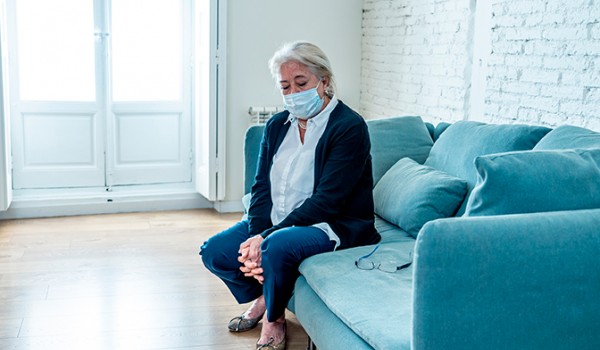
Mental health during the covid-19 pandemic
17.09.2020Coronavirus 2019 disease (COVID-19), considered a Pandemic from March 2020 and the crisis it causes, can be overwhelming and generate feelings of stress and anxiety in the population. Health measures, social distancing, loss of jobs can cause feelings of loneliness, fear and worry, sleep disorders, anxiety, as well as aggravate previous mental health problems.
These feelings also significantly affect some health care workers, who may perceive that their family or community does not want them around because of risk, stigma, or fear.
In a published study of factors associated with mental health outcomes among health care workers exposed to coronavirus disease, conducted among health care workers in hospitals equipped with clinics or fever rooms for patients with COVID-19 in Wuhan and other regions of China, participants reported experiencing a psychological burden, especially nurses, women, and frontline health workers directly involved in the diagnosis, treatment, and care of patients with COVID-19.
WHO defines health as a state of complete physical, mental and social well-being, not merely the absence of disease or infirmity. Therefore, addressing mental health and psychosocial well-being at this time is as important as addressing physical health, and for health workers, maintaining good mental health and dealing with staff stress during the response will help them be better prepared to perform their duties.
Considering that this situation will not go away overnight, it is important to take measures that will help us lower the level of stress, so the WHO recommends the following:
- Take care of basic needs.
- Rest.
- Limit exposure to media, decrease the time we spend watching, reading or listening to news that causes anxiety or distress. Seek information only from reliable sources and mainly about practical measures that will help you make protection plans for you and your loved ones.
- Helping others in need, for example, making phone calls to your neighbors or to people in your community who may need additional assistance. Working together as one community can help build solidarity by addressing COVID-19 together.
- Turn to your colleagues, your facility manager or other trusted people for social support, as your colleagues may be having experiences similar to yours.
- For medical staff, adopt helpful coping strategies such as resting and taking breaks during work or between shifts, eating healthy and sufficient food, being physically active, and keeping in touch with family and friends.
In its psychosocial and mental health considerations during the COVID-19 outbreak, PAHO recommends maintaining good quality communication and providing accurate information updates to all staff. Have staff rotate between functions that create a high level of stress and those that cause less stress. It is recommended that inexperienced workers work closely with their more experienced colleagues. Colleagues help provide support, monitor stress, and reinforce safety procedures.
When we take care of our mental health, we take care of our physical health and it allows us to be better prepared to perform our duties and to cope with times of crisis such as the present.
Related Articles
- Sanchez V, Adiukwu F, El Hayek S, et al. COVID-19 effect on mental health: patients and workforce. The lancet Psychiiatry Published on June 2020.
- Lai J, Ma S, Wang Y, et al. Factors associated with mental health outcomes among health care workers exposed to coronavirus disease 2019. JAMA Netw Open 2020; 3: e203976.
- PAHO/WHO. Psychosocial and mental health considerations during the COVID 19. March 2020 Spanish Society of Psychiatry. Taking care of the mental health of the health workers. April 2020
- PAHO/WHO. Spanish Society of Psychiatry. Caring for the mental health of health workers during the COVID-19 pandemic. April 2020
